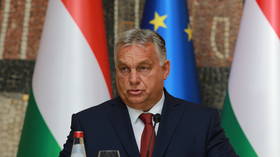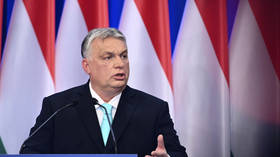Ukraine conflict a ‘Slavic fraternal war’ – Hungary

The Ukraine conflict is a face-off between two Slavic nations in which the rest of the world should not get involved, Hungarian Prime Minister Viktor Orban has said. He added that most other Western countries are doing everything they can to spread the hostilities.
In an interview with Kossuth Radio on Friday, Orban said the conflict between Kiev and Moscow “is not our war,” but rather a “Slavic fraternal war between two countries.” For this reason, he said other nations should strive to “isolate it, separate it, prevent it from spreading further.”
He acknowledged, however, that Budapest and the rest of the Western world have markedly different views on the situation, with the latter intent on globalizing the conflict and seeing it as their war.
According to Orban, this approach is mistaken as Western nations are risking severe consequences without having a clear goal.
He attributed this difference in positions to the fact that Hungary directly borders Ukraine, while most of Kiev’s backers are quite far away from the country.
The Hungarian prime minister noted that, while “tens of thousands die,” the front lines remain stationary, and there is a “constant danger” of other nations being affected by the conflict.
Orban also suggested that it would be a mistake to admit Ukraine into the European Union before the conflict is over. He noted that Kiev and Moscow have territorial disputes, and it is therefore difficult to predict how big or small Ukraine will end up being, and how much of the population will remain when hostilities end. He said these are key parameters for distributing responsibilities and resources within the EU.
The prime minister concluded by claiming that the bloc is short of funds, and currently has to decide between supporting Ukraine or its own less-developed member states, such as Poland, Hungary, the Czech Republic, Slovakia, and Croatia.
Earlier this month, Orban predicted that the “deterioration of the economic situation in the West will force countries to stand up for peace,” and they will urge Kiev to negotiate with Moscow.
Since the conflict broke out in February 2022, Hungary has been highly critical of Western economic sanctions on Russia, as well as the shipment of increasingly more advanced weaponry to Ukraine.













